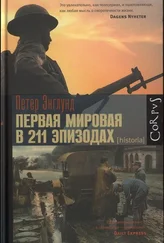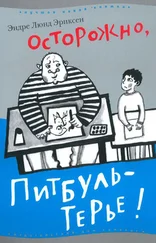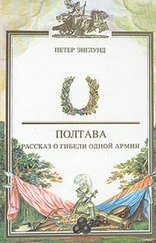This, however, does not mean that the Czechs themselves regard Jaroslav Hašek as a brilliant writer and Švejk as a national treasure. Just like two other writers with roots in Bohemiaand Moravia— Franz Kafkaand Milan Kundera— Hašek and his Good Soldier also generate more controversy than praise. But unlike German-writing Kafka or now French-writing Kundera, the controversy is not because Hašek doesn’t fill the requirements to be called a proper Czech. The problem is, as the historian Jan P. Kučera points out, that he is linked more closely to the Czechs and Czech culture than most people find pleasant.
The objections against Hašek and his literary hero can be sorted roughly into two groups — those related to the author, and those linked to Švejk’s morality (or rather his astonishing lack of it).
Admittedly, Hašek’s personal biography would be a nightmare to any good burgher anxious about his country’s good image. During his 40-year life — coincidentally, he was born in 1883, the same year as Franz Kafka, and died only a year earlier — Hašek held a fixed job for only six months, when he worked as a clerk at Slavia Bank. For the rest of his turbulent life, he existed on the very fringe of society, earning a living as a freelance writer based in Prague’s hospodas .
Besides being a well-known drunkard, hooligan jailbird, anarchist and provocateur (typically, The Party for Moderate Progress within the Framework of the Law , which he established, struggled to promote nationwide alcoholism), Hašek was a bigamist — during the First World War he married a Russianwoman without having been divorced from his Czech wife — while his real sexual orientation was very likely homosexual.
Just to complicate his personality, he suffered from manic depression, which explains his desperate alcoholism (Kučera quotes him saying that his brain didn’t work without booze) and his premature death in 1923. In Hašek’s lifetime, Švejk was published in flimsy booklets, which were sold at local hospodas . His international breakthrough, largely facilitated by Kafka’s friend Max Brod (see: Germans) took place only several years after Hašek had left this world.
Now, one might rightfully object that an author’s biography, however shocking, shouldn’t have any relevance to his literary work. The problem, however, is that most Czechs find too many similarities between Hašek and his hero Švejk to distinguish between them.
Just like his inventor, Švejk also is an extremely vulgar, anal-fixated, cheating, and boozing liar who is constantly churning out anecdotes and unbelievable stories. Švejk leaves the impression that he either is a complete idiot or at least very good at pretending to be one, while Hašek often maintained “in this world, only an idiot can enjoy real freedom”. As a soldier in the Austro-Hungarian Army during the First World War, Hašek defected to the Russians, where he even served as a Bolshevik commissary in the Siberian town of Bugulma. His alter-ego Švejk uses his brilliant idiocy to ridicule the Army, and ends up presenting cowardice as a great virtue.
Even worse, readers all over the world regard the “brilliant idiot” Švejk as something of a proto-type Czech. The writer Karel Hvižďala puts it like this:
„... Jaroslav Hašek has succeeded in something most literates dream about all their life: to create a figure who is both a unique individual and a representative of a certain kind of people.”
Other pundits were less enthusiastic. Leading Czech critics during the First Republic, most notably the feared and respected F.X. Šalda, found Švejk so vulgar and folksy, that they refused even to consider it as proper literature, and another famous critic, Václav Černý, took Hašek’s hero as living proof of his thesis that the Czechs were “either flunkeys or louts”. Despite Švejk’s overtly anti-Austrianstance, President Masaryk, in a very rare confluence of opinion with the Catholic Church (see: Religion) found him totally unsuitable as an ideal for newly-established Czechoslovakia.
Given Hašek/Švejk’s utterly proletarian background, the communists naturally embraced him with open arms. In the 1950s, the regime financed several grandiose screen versions of the books, plus the final “authorized” publication of Švejk, complete with Josef Lada’s wonderful illustrations. Inevitably, the Bolsheviks’intense love affair with Švejk only strengthened the Czechs’ ambivalent relation to Hašek and his hero.
These mixed feelings have lasted more or less to this day. A large chunk of the population — including, not surprisingly, almost every single woman in the country — detests Švejk and finds it both disgusting and offensive that someone can think of this “repulsive figure” as an icon of everything Czech. A smaller, but very vocal group of male intellectuals with a deep sense for beerand the Czech hospoda culture openly revere everything connected with Hašek and Švejk. And then there are the businesspeople who don’t care a bit about literature but are making good money on selling Švejk articles ranging from beer tankards and caps to dolls and toilet paper to stupid tourists.
What’s undisputed, though, is that Švejk has become a living part of modern Czech culture. In newspapers and discussions, people constantly quote golden phrases from Švejk, such as To chce klid (Take it easy), Přísnost musí bejt! (Discipline is needed!) or Kristus Pán byl také nevinnej (Jesus Christ was also innocent). “Švejkologists” and “Haškologists” meet regularly to drink beer and compete in reciting as many phrases as possible, and the verb švejkovat (to behave like a sly shirk) has become an oft-used part of the Czech language.
So, if Czechs really have a dual perception of their national identity— one that idealizes this industrious, democratic, open-minded and highly educated nation, and another that depicts a bunch of egotistic, mean, and cheating individuals with a keen sense of cynical humour — then Švejk represents the ultimate personification of the latter.
This probably sounds cruel, but you just have to face it: as a tourist in the Czech Republic, you’ll never be loved. If you happen to be in a famous tourist centre, such as Prague, Karlovy Vary or Český Krumlov, you can almost bet your boots that some waiter, hotel receptionist, or shopkeeper will take great care to signal that he or she considers your presence in the city as no more than a barely-tolerated nuisance. And local taxi-drivers, notorious for their ruthlessness, regard tourists in pretty much the same way that the wolf regarded Little Red Riding Hood.
This situation certainly isn’t too encouraging, but you don’t exactly need to be a psychoanalyst to understand the reason for it.
Even without tourists, the Czech Republic is one of the most densely populated countries in Europe. Add several million screaming, reeling, and gaping tourists, and the result, at least in Prague, is that all of the narrow streets in Old Town (where many people actually still live) are virtually clogged from the beginning of March to late October.
In the middle of the summer, it gets even worse. To move reasonably fast from one point in Prague’s centre to another, you’d better wear shoulder protectors and a helmet. Sometimes only a machete can help. And when you finally have made your way to your favourite hospoda , dripping with sweat and only seconds from a nervous breakdown, all tables are occupied by noisy and drunken tourists who splash Czech korunas about as if they were Monopoly money.
To common Czechs, the flood of tourists feels so strong and all-embracing that when the national news agency ČTK reported some years ago that 55 million foreignersvisit the country annually, not a soul reacted with mistrust. A Germanjournalist, however, took the effort to verify the ČTK report. If the estimate were correct, he concluded, there would be 3.4 persons sleeping in each and every hotel bed in the country every night. Considering the Czechs’ relatively relaxed attitude to sex, you can’t exclude the possibility that this actually occurs from time to time, but the Freudian message in the somewhat exaggerated ČTK report should instead be interpreted as follows:
Читать дальше








![Theresa Cheung - The Dream Dictionary from A to Z [Revised edition] - The Ultimate A–Z to Interpret the Secrets of Your Dreams](/books/692092/theresa-cheung-the-dream-dictionary-from-a-to-z-r-thumb.webp)



